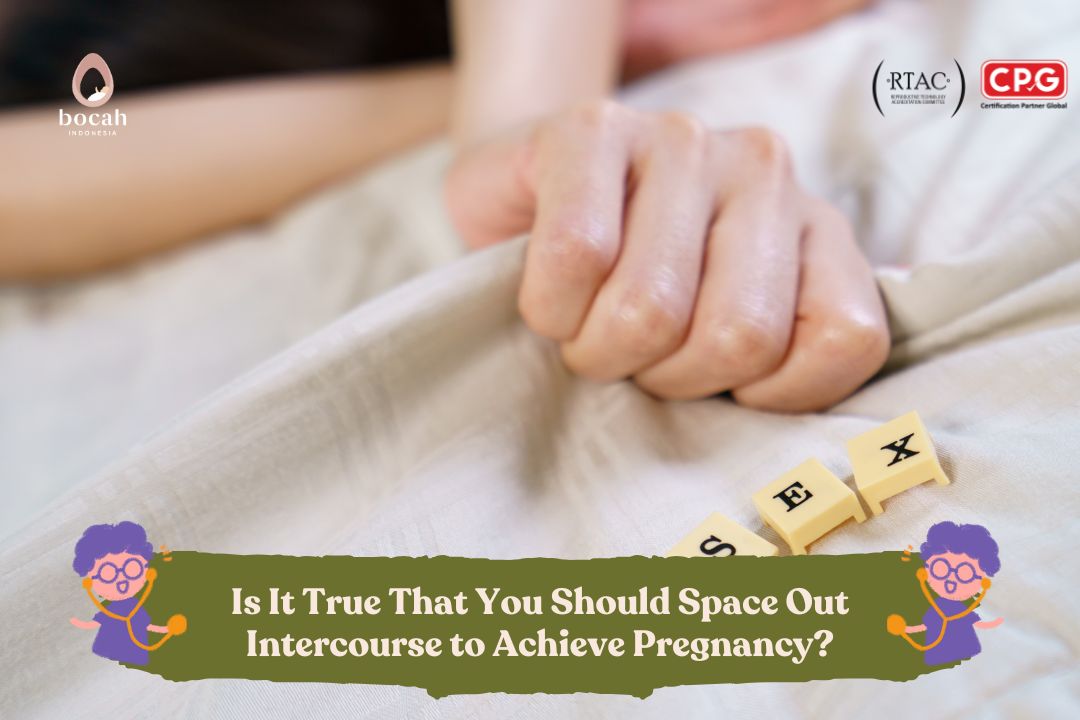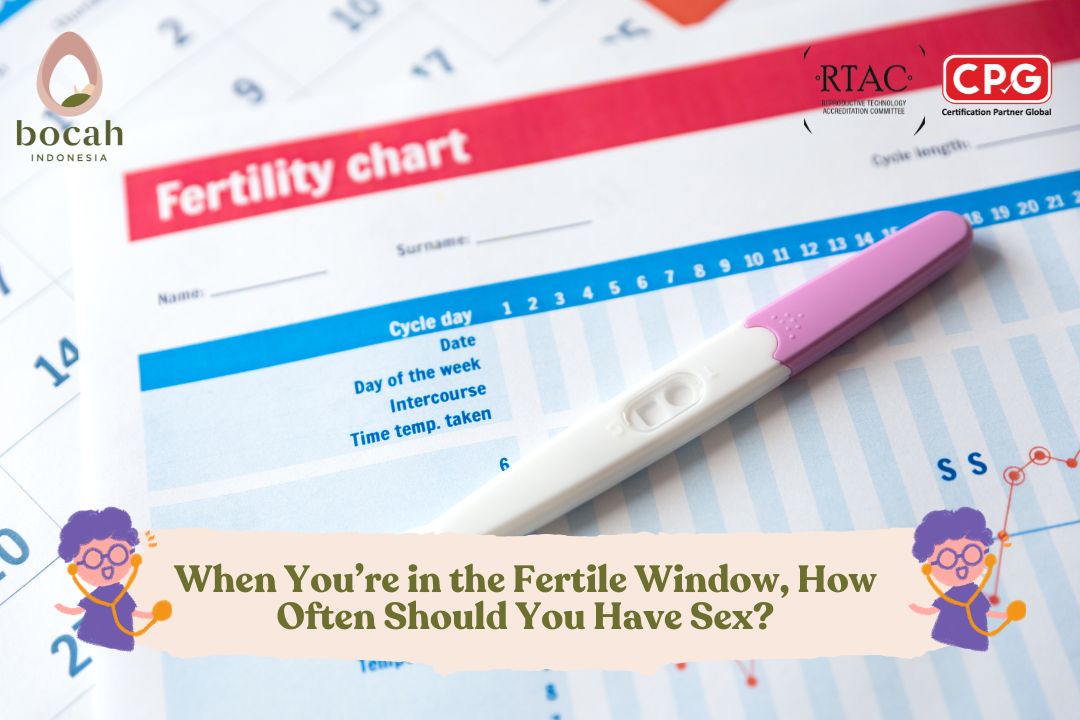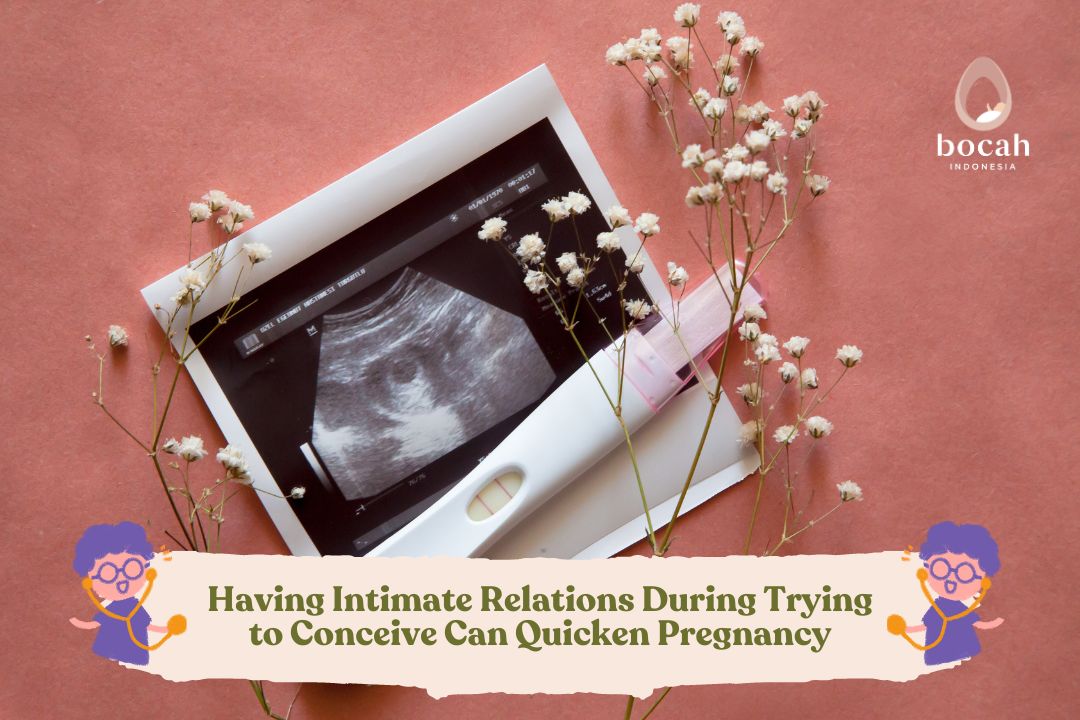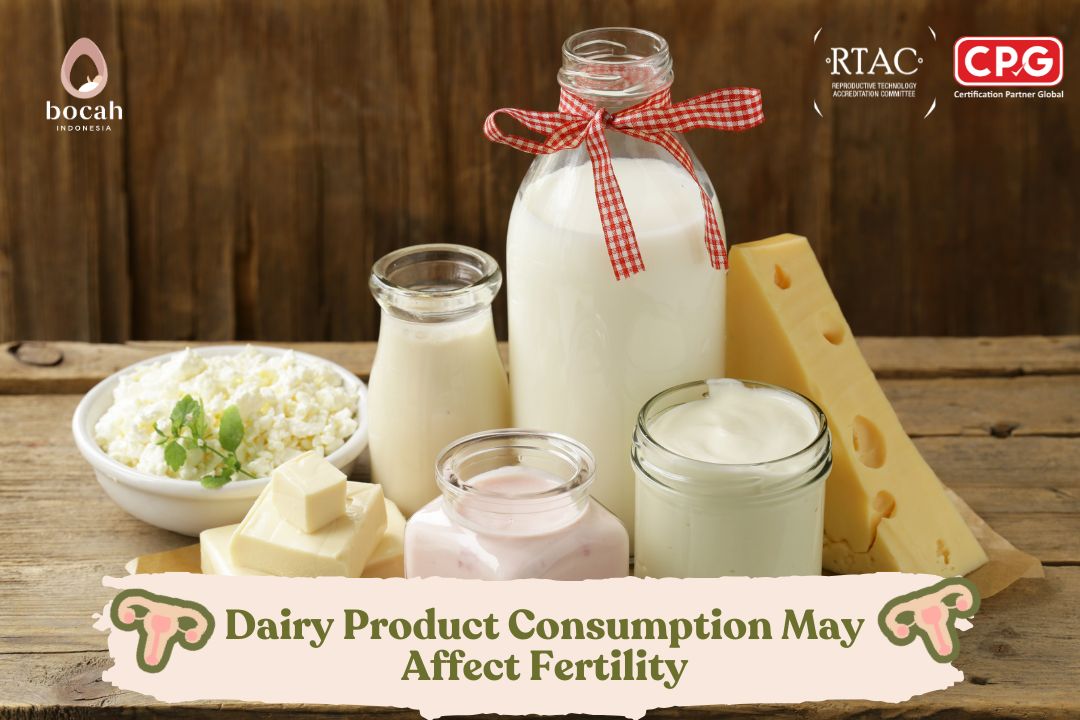Is It True That You Should Space Out Intercourse to Achieve Pregnancy?

Many couples are still confused about how often they should have intercourse during a conception program. Read the medical explanation here so you and your partner don’t take the wrong steps!
During a pregnancy program, many couples may wonder whether they should have intercourse every day or if it should be spaced out. Some believe that having intercourse too frequently can “deplete” sperm.
There are also opinions suggesting intercourse every other day to increase pregnancy chances. Others believe twice a week is enough for faster conception. So, which one is actually the most effective? Check out the full explanation below.
How to Determine Your Menstrual Cycle
Before deciding on intercourse frequency for conception, there is one essential thing to understand first: the best time to have intercourse is during the fertile window, which is when ovulation occurs—when the ovaries release an egg.
To know when ovulation happens, the first step is understanding your menstrual cycle pattern. The most fertile period typically occurs around 14 days before your next period begins.
A menstrual cycle is counted from the first day of your period to the first day of the next period. So, if your period starts on July 1st, that is Day 1 of the cycle. If your cycle is regularly 28 days, ovulation will likely occur between Day 12 and Day 14.
Tanya Mincah tentang Promil?
Other examples:
-
21-day cycle → ovulation around Day 7
-
35-day cycle → ovulation around Day 21
Observing cervical mucus can also help detect ovulation. As ovulation approaches, the mucus becomes clear, slippery, and stretchy—similar to raw egg white. This is a sign that your body is highly fertile.
How Often Should You Have Intercourse While Trying to Conceive?
There is a common belief that there is only one “golden day” for intercourse to achieve pregnancy. In reality, your fertile window lasts approximately 6 days—the 5 days before ovulation and the day of ovulation itself.
It is important to know that sperm can survive in the female reproductive tract for up to 5 days, while the egg survives only 12 to 24 hours after being released during ovulation.
Studies show that having intercourse daily or every two days during the fertile window can increase the chances of pregnancy. However, if having intercourse too frequently causes stress or pressure for you and your partner, spacing intercourse every other day will not significantly reduce your chances.
Is There a Best Intercourse Position?
There is no intercourse position that has been scientifically proven to increase the chances of pregnancy. However, some positions are believed to help sperm reach the egg more easily. Positions like missionary (man on top) and doggy style (man behind) allow deeper penetration, bringing sperm closer to the cervix.
On the other hand, positions where the woman is on top or standing may slightly “work against gravity.” Even so, standing right after intercourse does not significantly reduce pregnancy chances. Sperm are excellent swimmers and can reach the cervix within as little as 15 minutes after ejaculation.
There is no need to elevate your legs or lie down for a long time afterward, though placing a pillow under your lower back may help guide sperm more effectively—though it is not mandatory.
Tips to Increase Pregnancy Chances
Besides intercourse position and frequency, here are additional tips to improve fertility:
1. Orgasm
Ejaculation is essential for the male partner to achieve fertilization. Although the female partner does not need to orgasm to become pregnant, uterine contractions during orgasm may help guide sperm closer to the egg.
2. Maintain a Healthy Weight
Both partners should maintain an ideal body weight during a conception program. Being significantly overweight or underweight can affect fertility.
3. Avoid Smoking
Smoking can reduce fertility, increase miscarriage risk, and worsen sperm quality. In women, smoking can damage eggs, interfere with ovulation, and harm the cilia in the fallopian tubes.
4. Limit Caffeine
Consuming more than five cups of coffee per day may reduce the likelihood of pregnancy.
When Should You Consult a Doctor?
If you and your partner have been trying to conceive without success, do not hesitate to consult a general practitioner or fertility specialist. Here are general guidelines:
-
Women under 35: consult after 1 year of trying
-
Women 35 or older: consult after 6 months
-
Women 40 or older: consult as soon as you begin trying
Seek medical attention sooner if you have conditions such as:
-
Irregular or absent menstrual cycles
-
History of endometriosis
-
Previous pelvic inflammatory disease
-
History of miscarriage
-
Male partner with a history of hernia surgery or testicular issues
-
Male partner with a history of mumps
The doctor will evaluate your health condition and medical history. Many medical options are available, ranging from medications, insemination techniques, to surgical procedures—depending on each couple’s unique situation.
Source:
- Levitas E, et al. (2005). Relationship between the duration of sexual abstinence and semen quality: Analysis of 9,489 semensamples. DOI:https://doi.org/10.1016/j.fertnstert.2004.12.045
- NHS. (2018). Trying to get pregnant. Retrieved from https://www.nhs.uk/conditions/pregnancy-and-baby/getting-pregnant/
- Tobah, Y. B. (2016). What ovulation signs can I look out for if I’m hoping to conceive? Mayo Clinic. Retrieved from https://www.mayoclinic.org/healthy-lifestyle/getting-pregnant/expert-answers/ovulation-signs/faq-20058000
- Witt, B. (2023). Trying to get pregnant? Here’s when to have sex. American College of Obstetricians and Gynecologists. Retrieved from https://www.acog.org/womens-health/experts-and-stories/the-latest/trying-to-get-pregnant-heres-when-to-have-sex










